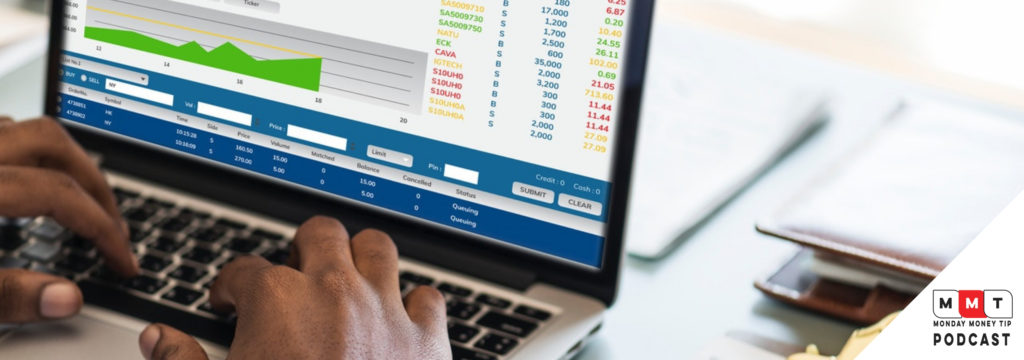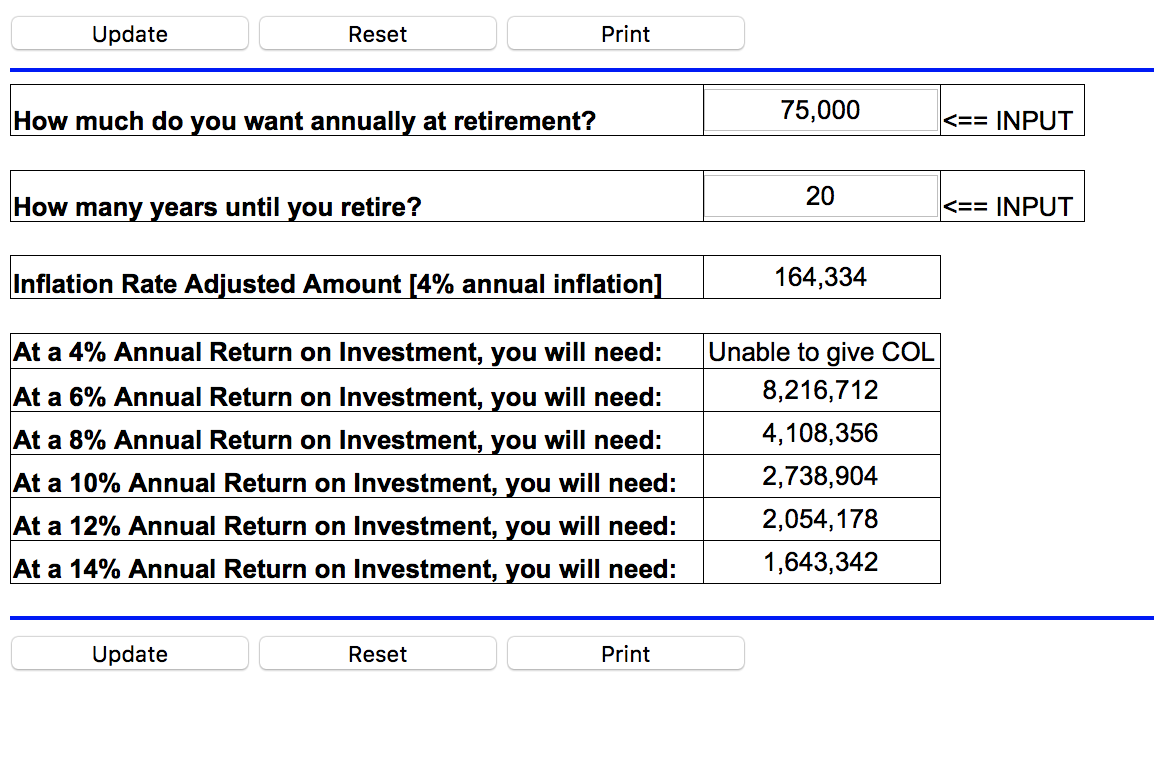Retirement
Is All Debt Equal?

Happy Monday! It’s a great day because another episode of the Monday Money Tip Podcast is LIVE! In this episode, we’re talking about debt, specifically, is all debt equal. We’ll discuss the different types of debt and break down what kind of debt you should avoid and if there is any debt that is ok to have. Everyone has a different opinion, so we’re breaking it down for you. In our Current Money Events segment, we’re sharing the updated contribution limits to your retirement accounts and other tax-advantaged investment accounts. Our success story comes from David, who is almost halfway up rung #4 of the I Was Broke. Now I’m Not. Ladder!
Find more episodes of the Monday Money Tip Podcast HERE. Please let us know what you think by leaving us a rating!
Email info@iwbnin.com to ask questions or share success stories.
NOW AVAILABLE TO DOWNLOAD:
iTunes
Stitcher
Spotify
Website
YouTube
About the Episode:
- Today, we’re answering: “I want to hear your thoughts on debt. Dave Ramsey says, “NO!” to all debt – except for maybe a house. Others say, “Use other people’s money.” I’m so confused. Help!”
- In our Current Money Events segment, we’re sharing the updated contribution limits to your retirement accounts and other tax-advantaged investment accounts.
- Our success story comes from David, who is almost halfway up rung #4 of the I Was Broke. Now I’m Not. Ladder!
Resources:
I Was Broke. Now I’m Not. Participant Kit + FREE Access to Online Study
I Was Broke. Now I’m Not. Group Study DVD
0% Balance Transfer Credit Cards
Article – IRS Retirement Plan Contributions
Article – IRS Internal Revenue Bulletin
IWBNIN Ladder
Debt Tools
Next Step: Debt
Other Monday Money Tip Podcast Episodes on Debt:
Episode 36 – Bite-Sized Debt
Episode 28 – 8 Ways to Speed Up Debt Elimination
Episode 19 – Is All Debt Bad?
Episode 18 – How to Pay Off Debt Quickly
MONDAY MONEY TIP PODCAST: The Right Retirement Account

Another episode of the Monday Money Tip Podcast is LIVE! In today’s episode, we’re discussing what type of retirement account you should have – 401k or Roth 401k. We’re also diving into how to choose the right investment options within your retirement account. In our Current Money Events segment, hear our quarterly stock market update. We’re also sharing a success story from Andy, who has been able to accomplish more than he could have imagined with a budget.
It’s our goal at the end of each episode that you gain hope and encouragement in your financial journey, you’re equipped to take the next step, and that you’ve had FUN with us!
Find the Monday Money Tip Podcast HERE. Please let us know what you think by leaving us a rating!
Email info@iwbnin.com to ask questions or share success stories.
NOW AVAILABLE TO DOWNLOAD:
iTunes
Stitcher
Spotify
Website
YouTube
About the Episode:
- We answer the question: “I just got my first job, and I have two retirement account options – 401k and Roth 401k. Within them, I have lots of investment options. Can you help me figure out what I should choose?”
- In our Current Money Events segment, I share our quarterly stock market update.
- Hear a success story from Andy who has been able to tithe, pay off debt, reduce outgoing money, put money into savings, and invest in his future, all with the help of a budget.
Resources:
IWBNIN – Savings & Investments
Joe’s Investments
OXEN: The Key to an Abundant Harvest
Investment Value Calculator
Quote of the Day: “There is no HARVEST if you do not INVEST” – Joe Sangl
401(k)’s Explained
I’m sure by this point you know it is very important to save into a retirement account so that at one point you can stop working. But this can be confusing to navigate when you are unsure of what the different accounts are and how they work. The numbers and letters are thrown around so often it can be easy to feel like you should just KNOW what everything means. But what exactly is a 401(k)?
Simply put, a 401(k) is a retirement savings plan that comes from Section 401 part k of the IRS tax code. It is what is known as a “pre-tax” investment which means that generally you are able to deduct annual contributions on your taxes each year. Once the money is in the account, it grows tax-free until you withdraw the money. At that point, you will have to pay taxes on your initial investment and also any growth that has accumulated.
If your employer has a 401(k) available for you to invest in, most times they will also offer a match up to a certain percentage. For example, some employers may match dollar for dollar up to 6%. So if you invest 6% of your paycheck into your 401(k), your employer will match that 6%. That’s FREE money!
401(k)’s can be a fantastic vehicle to accumulate money for retirement. While it can be confusing with so many different types of accounts the key is to get started saving and never turn back!
========================================================================
Want more tips like this one? Subscribe to the Monday Money Tip Podcast HERE.
Retirement Nest Egg Calculator
Do you know how much money you will need per year in retirement? Do you know how that number will be affected by inflation? I would encourage you to check out our Retirement Nest-Egg Calculator Tool. While it may trigger a shock to your system when you see the numbers, it can help you get into gear to retire well.
This calculator is incredibly easy to use and only needs two pieces of information from you! All you need to do is enter the amount of money you would like annually in retirement and how many years until you expect to retire. After that, the calculator will compute the amount of money that you need to have saved and how different annual rates of return will change that number.
Below you can see a calculation that I ran for an “annual amount I want” of $75,000 if I hypothetically retire in 20 years:
 As you use this calculator, keep a couple of things in mind:
As you use this calculator, keep a couple of things in mind:
- The calculator assumes that you will never touch the principal.
- The calculator assumes that you will give your nest-egg a “cost-of-living-raise” of 4% each year.
- This calculator adjusts the “annual amount your want” for an average annual inflation of 4%.
So, at 4% annual inflation, I will need $164,334 per year in 20 years to have the same purchasing power that $75,000 has today.
The bottom six rows tell you what you need to have in your nest-egg at different rates of annual growth. At 8% annual return, I would need $4,108,356 when I retire. That number drops significantly if I expect growth of 12% and I would only need $2,054,178 when I retire.
These numbers may seem astronomical and you might feel like you will never build a nest-egg of that size. But remember, the power of compound interest can work in your favor! By starting early and investing consistently, you can watch your nest-egg grow to numbers you may have only dreamed of.
========================================================================
Want more tips like this one? Subscribe to the Monday Money Tip Podcast HERE.
Benefits of an IRA
You have probably heard something at some point about making contributions into an Individual Retirement Account (IRA) to prepare for retirement. Retirement and investing can seem scary and difficult or only for the super rich but I’m here to tell you: That is a lie. You can (and should!) begin investing for retirement and an IRA is a fantastic way to do just that.
The most popular types of IRA’s are the Traditional IRA and the Roth IRA. These investment vehicles are great ways to accumulate retirement money although they differ in their taxation. You can learn more about their differences in our podcast, Roth vs. Traditional IRA.
When you decide to invest into an IRA, regardless of the one you choose, you can expect to experience a variety of benefits.
Taxation: When you invest into a Traditional IRA, those contributions are made with “pre-tax” dollars which means that you can deduct them from your income. In a Roth IRA, contributions are made with after-tax dollars. This means that while you will not get a tax deduction, you will not have to pay any taxes when you withdraw the money in retirement. The tax benefits of both accounts can provide great traction when accumulating money for retirement.
Automation: One of the reasons IRAs are so popular is because they allow you to automate your savings. These accounts are incredibly easy to start and with a simple bank draft, you can make sure that you are investing every single month.
Compound Interest: After you have set up your IRA and automate your contributions, you will eventually be able to see the 8th Wonder of the World: Compound Interest. This means that once you start adding money you will start earning interest on that money. And then interest on THAT money. Your money will begin to work for you.
These are only a few of the benefits that you’ll experience when investing into an IRA. Ultimately, you want to make sure that you are taking advantage of every benefit that you can when you’re trying to save money for retirement. Whether you are fast approaching retirement or just getting started in life, using one of these accounts can greatly help you accumulate money so you can live your best life when you eventually leave the workforce.
========================================================================
Want more tips like this one? Subscribe to the Monday Money Tip Podcast HERE.